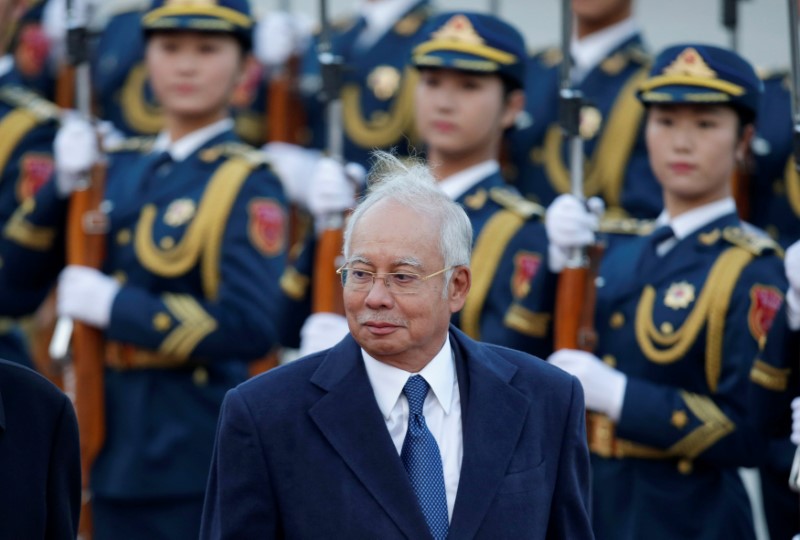By David Brunnstrom
WASHINGTON (Reuters) - The top U.S. diplomat for East Asia chided Malaysia's prime minister on Thursday for reported comments critical of the West that "sounded a little bit more like" his predecessor Mahathir Mohamad, but said he did not see evidence of a tilt towards China.
In an editorial published in the state-run China Daily newspaper on Wednesday, Malaysian premier Najib Razak said former colonial powers should not lecture nations they once exploited.
The comments were seen as a veiled attack on the West as Najib looked to strengthen ties with China after the U.S. Justice Department filed lawsuits in July implicating him in a money laundering scandal.
Asked about signs of Malaysia seeking a closer military relationship with China after Najib agreed in Beijing on Tuesday to buy four Chinese naval vessels, Daniel Russel, U.S. assistant secretary of state for East Asia, told a news briefing:
"I read something attributed to the prime minister in the People’s Daily that sounded a little bit more like former prime minister Mahathir than current Prime Minister Najib, but OK, there may be some special circumstances.
"As far as Malaysian purchases from China – that’s not tilting to China, that making a commercial deal. Everybody does it. The very idea that third-country cooperation with China is somehow a bad thing, is adverse to our interests, it's ridiculous."
Mahathir, known for his outspoken, anti-Western rhetoric, was once Najib's patron but turned against him in 2013 by criticizing the government's economic policies and friendliness with the West.
Russel said U.S. ties with Malaysia had improved under President Barack Obama and noted that Obama's visit there in 2014 was the first by a U.S. president in 50 years.
Russel said Washington welcomed improved relations between Southeast Asian countries and China, and this went too for the Philippines, which has been going through a period of strained ties with Washington under its new president, Rodrigo Duterte.

"We don’t want countries to have to chose between us ... Strong, constructive, productive bilateral relations with China are an important part of our strategy. Why wouldn't it be an important part of the strategy of China's own neighbours?" Russel said.